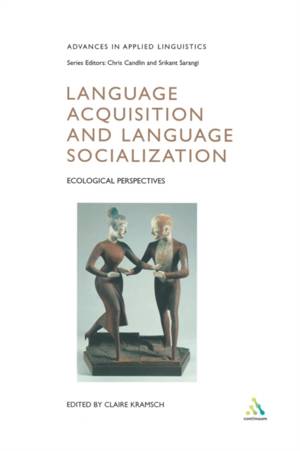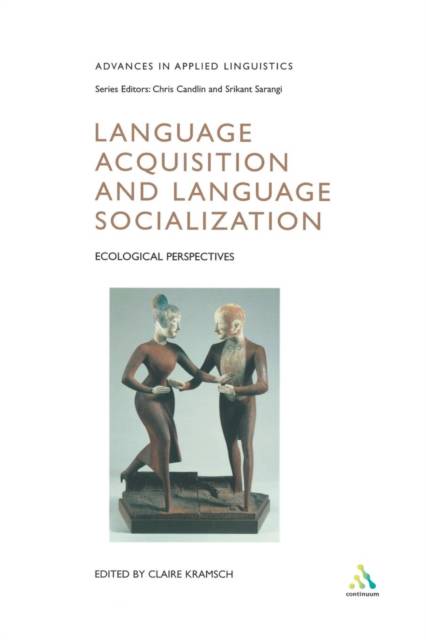
- Afhalen na 1 uur in een winkel met voorraad
- Gratis thuislevering in België vanaf € 30
- Ruim aanbod met 7 miljoen producten
- Afhalen na 1 uur in een winkel met voorraad
- Gratis thuislevering in België vanaf € 30
- Ruim aanbod met 7 miljoen producten
Zoeken
Language Acquisition and Language Socialization
Ecological Perspectives
€ 127,45
+ 254 punten
Omschrijving
Language Acquisition and Language Socialization brings together well-known scholars in two relatively distinct fields - language acquisition and language socialization - and from a variety of orientations within applied linguistics (psycholinguistics, socioloinguistics, anthropological linguistics, educational linguistics) to describe language development from a relational perspective. The notion of ecology offer a convenient metaphor for the complex variational processes that take place within individuals, and between individuals and their social and cultural environment, as they attempt to learn the language of the Other. The chapters are a response to the three main questions discussed inthe Introduction: What conceptual models best capture the ecological nature of language learning? What research approaches are most likely to illuminate the relationship between language and social structure? How is educational success defined for language acquisition and language socialization? For researchers, the main strength of the book will be its empirical and phenomenological base, and the variety of methods used. The theme of ecology affords a fresh look in to phenomena not encompassed by the language acquisition or languge socialization research alone. It puts in to question traditional ways of looking at time, space, subjectivity and identity in the acquisition of another langauge and its use in a variety of social contexts. For language teachers and educators, this book avoids the traditional dichotomies such as language acquisition vs. language use, and captures the complex and holistic nature of language learning and teaching. Claire Kramsch is Professor of German and Foreign Language Acquisition, University of California, Berkeley.
Specificaties
Betrokkenen
- Uitgeverij:
Inhoud
- Aantal bladzijden:
- 320
- Taal:
- Engels
- Reeks:
Eigenschappen
- Productcode (EAN):
- 9780826453723
- Verschijningsdatum:
- 31/01/2003
- Uitvoering:
- Paperback
- Formaat:
- Trade paperback (VS)
- Afmetingen:
- 160 mm x 233 mm
- Gewicht:
- 498 g

Alleen bij Standaard Boekhandel
+ 254 punten op je klantenkaart van Standaard Boekhandel
Beoordelingen
We publiceren alleen reviews die voldoen aan de voorwaarden voor reviews. Bekijk onze voorwaarden voor reviews.







